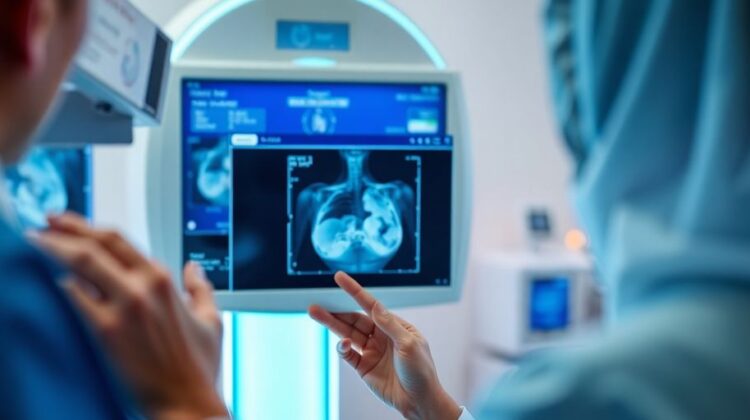
A recent study presented at the annual meeting of the Radiological Society of North America (RSNA) has revealed promising results regarding the use of artificial intelligence (AI) in mammography screening. The research indicates that women who opted for AI-enhanced mammograms were 21% more likely to have breast cancer detected compared to those who did not use the technology. This significant finding highlights the potential of AI to improve early detection rates in breast cancer screening programs.
Key Takeaways
- AI-enhanced mammograms led to a 21% increase in cancer detection rates.
- The study involved 747,604 women over a 12-month period.
- Overall cancer detection rates were 43% higher for participants in the AI program.
- Selection bias may have influenced some of the results, as higher-risk patients were more likely to enroll.
- Researchers aim to conduct randomized controlled trials to further quantify AI’s benefits.
Study Overview
The study, conducted by DeepHealth, an AI firm under the umbrella of radiology giant RadNet, analyzed data from a large cohort of women who underwent mammography screening. The findings were presented at the RSNA meeting, showcasing the potential benefits of integrating AI into routine breast cancer screening.
The research focused on women who voluntarily paid for AI-enhanced scans, which utilized FDA-compliant software to assist radiologists in identifying anomalies in mammograms. This technology acts as a “second set of eyes,” potentially increasing the accuracy of cancer detection.
Results and Implications
The results of the study are compelling. Women who participated in the AI-enhanced screening program experienced a 43% higher overall cancer detection rate. However, it is important to note that 22% of this increase may be attributed to selection bias, as women at higher risk for breast cancer were more inclined to enroll in the program.
Despite this, the analysis concluded that the remaining 21% increase in detection rates could be directly linked to the use of AI technology in the screening process. This suggests that AI can play a crucial role in improving the effectiveness of mammography, potentially leading to earlier diagnoses and better outcomes for patients.
Future Research Directions
While the findings are promising, researchers acknowledge that further studies are needed to validate the results. They are currently seeking to conduct randomized controlled trials to better quantify the benefits of AI in breast cancer detection. Such studies could provide more definitive evidence regarding the effectiveness of AI-enhanced mammography and its impact on patient outcomes.
Conclusion
The integration of AI technology into breast cancer screening represents a significant advancement in the fight against this prevalent disease. With the potential to increase detection rates by 21%, AI could transform the landscape of mammography, leading to earlier diagnoses and improved survival rates for women. As research continues, the hope is that AI will become a standard component of breast cancer screening programs, ultimately saving lives and enhancing the quality of care for patients.

Leave a Reply